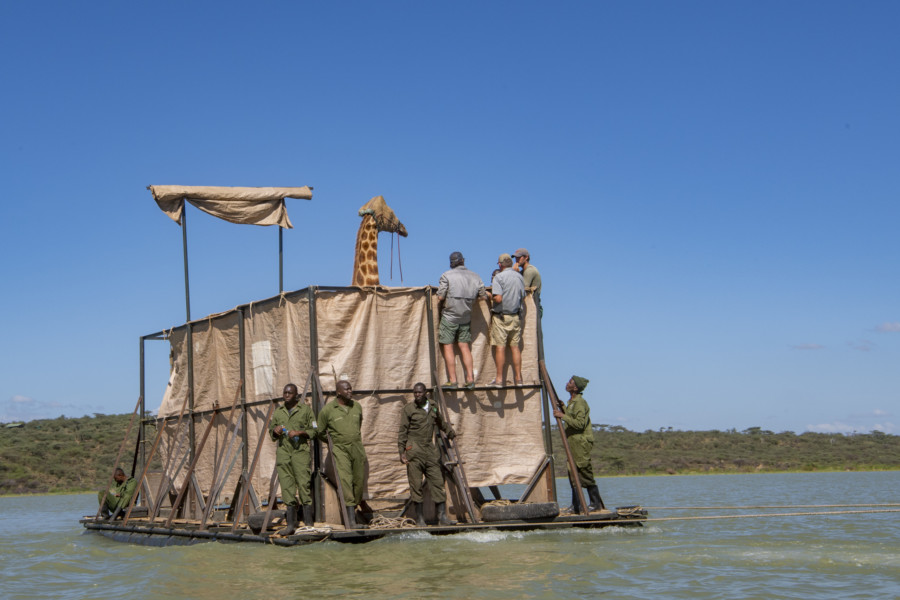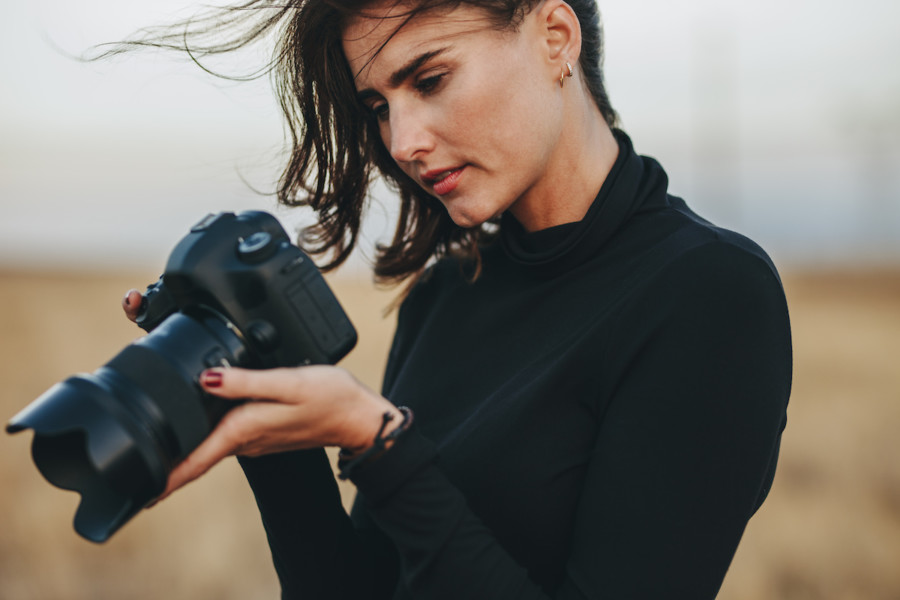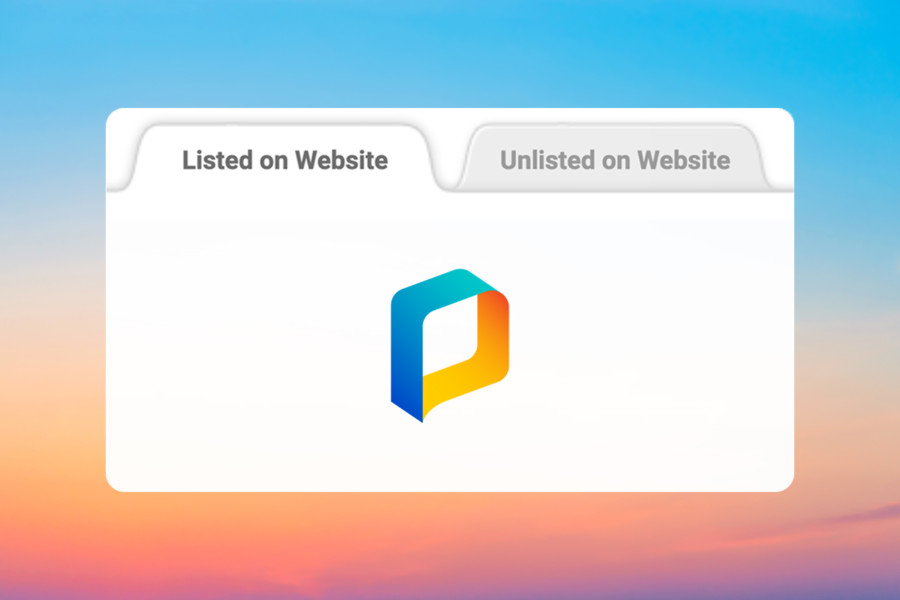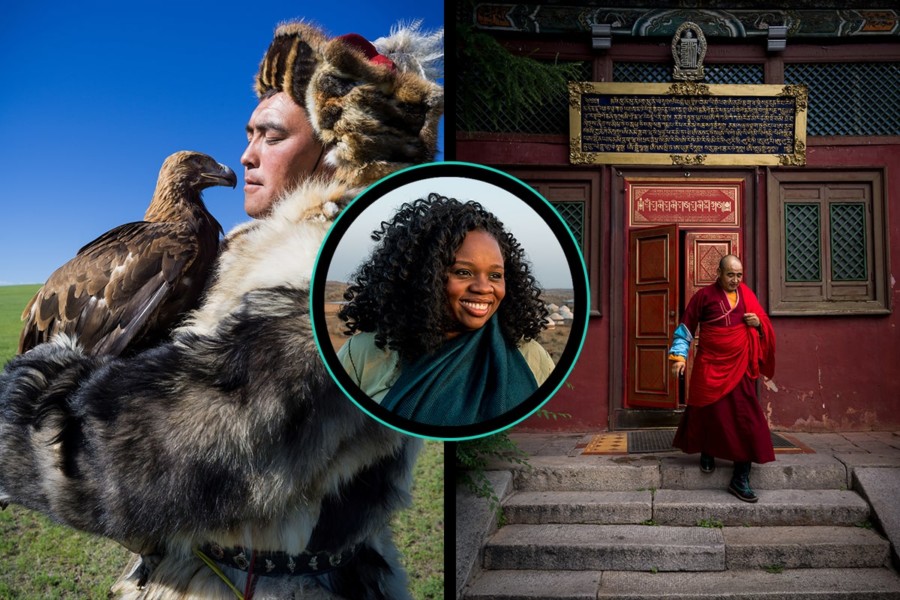Share
WATCH: Ami Vitale on Using Photography to Effect Change
For Ami Vitale, courage has been at the core of her career in the photo industry – courage to get out there, learn and grow as a photographer, an...

For Ami Vitale, courage has been at the core of her career in the photo industry – courage to get out there, learn and grow as a photographer, and courage to tell important stories that can make a real impact on our planet.
We sat down with Ami, National Geographic photographer and Nikon Ambassador, to see how she uses visual storytelling to raise awareness for the animals and communities she photographs.
Now we’re sharing this inspiring talk with you.
Watch to learn about:
- Ami’s transition from conflict photographer to her passion for photographing wildlife and environmental causes
- How she uses photos and storytelling to make an impact on wildlife and our environment
- How to use your own photography to create change
On-Demand Webinar: Every Day Is Earth Day – Ami Vitale on Using Photography to Effect Change
Our Q&A with Ami
Thank you to everyone for submitting questions for photographer, filmmaker, writer and explorer Ami Vitale. Have any additional questions? Tweet us @photoshelter and let us know!
This Q&A was edited for clarity and length.
Can you talk a little bit about how you think gear, or lack thereof, can actually help elevate your storytelling?
AV: Yes. So I’m really, really sensitive – sometimes too sensitive, where I’ll stop taking a photo because I just feel like it’s so disruptive and alienating. I’ll talk to the people later too, and they’re like, “Oh no, I wanted you to take the picture. Oh, you didn’t?” So I found myself stopping myself and very often it was the sound of the shutter hitting.
I was so aware of myself being there and I’m learning to get over that, but going mirrorless was amazing because I just put it in silent mode and even flip the screen out. I use the Nikon Z 6II right now, and I love it because I can flip seamlessly between shooting still images and actually making videos. I love that because I’m not even pressing the camera against my face. I’m really engaging with people.
I’m always looking at them and really showing my emotions with them and you can touch the screen and you don’t even have to touch the shutter. You can just be operating, taking pictures, making videos and doing everything you need to while still engaging and feeling sort of like you’re a part of the situation while also not disrupting it, and that’s huge for me.
Earlier in your career, you were feeling a bit stuck and so a few people were asking if you could talk a little bit more about that and any tips that you might be able to provide to those who may be feeling stuck in their careers now.
AV: Definitely. I think that we all have hidden strengths and we often don’t even know what they are. I didn’t. So, I think part of it is sometimes asking the people that know you the best what they see as your hidden strength or strengths. It doesn’t even have to be hidden. That’s one way to get started.
Another thing is, to help you get to the root of those issues – really doing some deep soul searching. Are you actually working on the things you want to be working on? Are you working on the things you think you should be working on? Because I found that’s something that really stops me. I think about if I should be doing this. That word; just eradicate should from your vocabulary.
Don’t worry about what you think you should be working on or what others tell you you should be working on. Figure out what you love. I find, for me, sometimes just walking alone helps. If you can just go on a walk and get away from the noise of the world.
I don’t think we give ourselves enough time to allow ourselves to just think. Don’t worry about what you have to do. Honor yourself. I know Einstein talked about that. He said that his best ideas came from when he was walking in nature. I don’t think we all do enough of that. Turn that phone off. I have to tell you, I don’t look at that much social media anymore. I quit Facebook. I have a wonderful assistant, Eileen Mignoni. I love you so much. What she does is she monitors all of the social media for me and sends it to me in an email.
So if you’re writing to me, you are absolutely hearing my voice back to you, but it all comes at one time in an email… I commit a certain amount of time to go through and see what my friends are up to but I also find that it can be a really distracting voice and sometimes a negative voice. So be careful about how you consume and what you’re consuming. It’s just like food, all that social media. What you eat, how you spend your time, all of that matters. So I think the other thing I do is just question myself. “Am I letting my fear of other people’s opinions influence what I’m working on?” That’s important too.
Then, is there some advantage of continuing your current course of action rather than trying something new? I’ll say that again. Is there an advantage to continuing what you’re doing right now, rather than trying something new? I think sometimes we don’t give ourselves enough space to just be brave and try something we haven’t done because it’s scary to start something as a beginner and those are often where we find the things that we do best.
Just be brave and try something new. It’s really about paying attention to what you truly love and tuning out the voices of the outside world.
Let’s say National Geographic doesn’t pick up your story… are you also writing the stories that you’re pitching? Can you talk a little bit about that?
AV: Yeah. So, pitching is a really important skill and it’s difficult. I actually have a resource page on my website. And PhotoShelter is amazing. They’ve got all these guides every year and I religiously, religiously try to read those guides.
But what I do is I make myself apply for grants almost every year and what that does is it keeps you in the habit of learning how to write a good pitch.
I will say a couple of things: shorter is better. Get used to writing pitches in a paragraph. And that’s what I do when I’m writing an editor. Be really aware that editors are being pitched by probably thousands of people. They don’t have a lot of bandwidth. So make sure your pitch is short, concise and to the point. That is a skill, so just practice it.
I have to work on that, too. I’m always working on my pitches and they’re not good the first time. If you don’t know how to start, go look at one of the grants that you want to apply for, look at the questions they ask you and figure out if you’re answering it in one short paragraph.
There are workshops. There are so many communities to get involved in that can help you. PhotoShelter is a great community. Women Photograph, there’s so many. There are so many resources right now. But, I think that it’s about just sitting down and realizing that less is more. That’s a good way to get started.
How does one begin, who has no experience in photography, but has empathy and curiosity to share stories for impact and change?
AV: I still struggle. I’ve been doing this for 20 years and every story is a struggle in the beginning and I just think you have to carry your camera with you all the time. Don’t even put it in a bag. I carry one camera and one lens on that camera.
My go-to lens is a 24-70mm 2.8 and I just have it with me. Part of it is just being present, having your camera with you, getting really comfortable with it. Make sure that when you go outside that the camera is on the settings it needs to be. Go for a walk. Figure out what story it is and start reaching out to the people who are working on the story.
If there’s a community of people – maybe it’s about habitat restoration – find out who’s working on that in your community. Write them a letter. Set up a call. Go and meet them, if you’re able to, and just start taking pictures.
I think it’s about baby steps. You’re not going to be an expert the first day. Maybe you’ll get lucky and are an expert on the first day, but just start going. Look at some of the work of people you admire and really start to understand that art of storytelling. There is an art to it, crafting visual stories where you have a whole series of images that tell the story. Maybe consider doing workshops.
I know that I, and so many of my colleagues, we mentor and we do workshops. I think that the thing is not to stop. I almost never became a photographer because I was so intimidated by all the people around me that I thought were amazing and I didn’t understand the technical part of the camera. I just thought, “I can’t. I’m not… this isn’t for me.”
Don’t let these kinds of momentary obstacles stop you because you might be one of the best storytellers out there. I truly believe empathy is the most important skill we all need.
If you’d like to see Ami’s entire presentation, along with the questions asked here, watch the on-demand webinar above.
Cover image by Ami Vitale.



